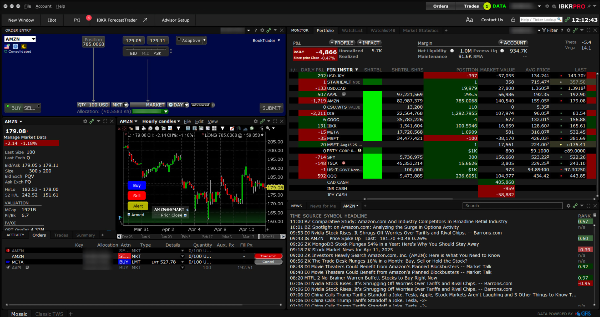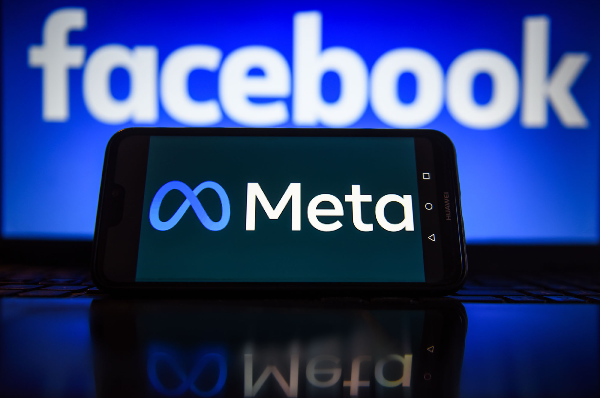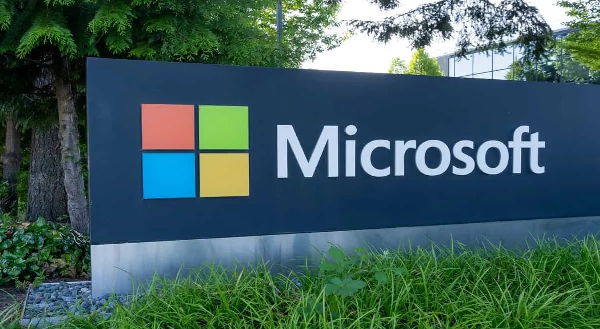Microsoft Profile (MSFT)
Founded in 1975 by Bill Gates and Paul Allen, Microsoft is a multinational technology corporation which is headquartered in Redmond, Washington. It is regarded as one of the globally leading software makers. According to data from March 2025, Microsoft holds the third position globally, just behind Apple and Nvidia, and a market cap of $2.95 trillion. It has its businesses in the segments of productivity and business processes, intelligent cloud, personal computing, AI business solutions and security. With the company’s continued commitment to innovation and scaling, it is one of the most watched stocks by investors.
Financial Analysis
Currently trading at $ 438.71, Microsoft has witnessed financial buoyancy in the recent times. Its financial results for Q1 FY25 were robust, owing to the company’s strategic initiatives, strong revenue contributions from key business and favorable industry trends. Its revenue was $65.6 billion, a year-on-year increase of 16%, diluted earnings per share increased by 10% to reach $3.30, operating income was $30.6 billion at a rise of 14% and net income, $24.7 billion which marked a surge of 11% (up 10% in constant currency).
A few of its prime segments were large contributors towards its revenue. Microsoft Azure Cloud Services expanded its revenue by 33%, with AI services contributing 12 percentage points to this. The Microsoft acquisition of Activision Blizzard had a strong impact on the increased revenue of 61% of Xbox content and services. Aligned with its centricity on shareholder return, in Q3 FY25 it returned $9.7 billion to shareholders through dividends and share repurchases. Furthering its focus on strategic investments in AI infrastructure, in May of this year it announced its plans to allocate $80 billion towards it.
Market Sentiment
Surpassing Wall Street’s expectations of its Q3 2025 earnings, Investopedia reports that MSFT stock saw an upsurge of 7% during after-hours trading. Microsoft revenues from a few business streams outpaced the analyst expectations, which signifies a positive market reaction to its bold investments in AI and cloud infrastructure. This has led to the revised price targets by multiple analysts. Contrarily, companies such as UBS lowered it from $525 to $510. It noted that three consecutive quarters of Azure growth falling short of expectations could undermine confidence in Microsoft's growth outlook. Its CEO, Satya Nadella, draws attention to Microsoft’s outlook of sustaining its commitment to innovation to strategically develop resilience against economic pressures.
Opportunities & Risks
The bold actions that have been undertaken by Microsoft require a balanced assessment of the opportunities and risks that they pose. The opportunities are its strategic investments for long-term growth and competence and the risks are the requirements to monitor capital expenditure, geopolitics, macro-economic factors and rising competition.
Opportunities- Its heavy investments in AI and cloud software have received strong investor confidence, owing largely to its promising performance in the business segment. The integration of AI into its product lines will enrich its ability to capitalize on the fast-paced demand for enterprise-based AI-driven productivity tools. On a Microsoft Earnings Call, it said that with a commercial remaining performance obligation (RPO) of $315 billion, up 34% year-over-year, Microsoft has a substantial backlog, indicating sustained future revenue streams from long-term contracts. Its capital expenditures, such as finance leases, witnessed a notable reduction.
Risks- Changes in global trade, inclusive of the tariff war, will largely impact Microsoft’s businesses. While it has demonstrated its financial elasticity, important changes in trade policies will hamper the cost and operational efficiency of its supply chain. Its pledge towards innovation, that catapults to high capital expenditures, may result in short-term losses which will impact the investor sentiment. The aggressive efforts of its competitors, mainly Amazon Web Services and Google Cloud, may shrink the market share of Microsoft.
Buy, Hold or Sell?
As of today, MSFT reflects a 0.12% increase from the previous close. It is expected to have a winning streak for the next couple of weeks. Its F Score stands at 6 out of 9, showcasing its efforts for margin efficiency and operational proficiency. Its stellar financial performance and visionary actions to augment its market share render an equilibrated assessment of its stock. The investors will continue to monitor the company’s plans to identify its sensitivity towards MSFT. Microsoft’s long-term growth predictions remain positive and appeal to investors with diverse portfolio interests. MSFT holds a Buy status.






















Microsoft Profile (MSFT)
Founded in 1975 by Bill Gates and Paul Allen, Microsoft is a multinational technology corporation which is headquartered in Redmond, Washington. It is regarded as one of the globally leading software makers. According to data from March 2025, Microsoft holds the third position globally, just behind Apple and Nvidia, and a market cap of $2.95 trillion. It has its businesses in the segments of productivity and business processes, intelligent cloud, personal computing, AI business solutions and security. With the company’s continued commitment to innovation and scaling, it is one of the most watched stocks by investors.
Financial Analysis
Currently trading at $ 438.71, Microsoft has witnessed financial buoyancy in the recent times. Its financial results for Q1 FY25 were robust, owing to the company’s strategic initiatives, strong revenue contributions from key business and favorable industry trends. Its revenue was $65.6 billion, a year-on-year increase of 16%, diluted earnings per share increased by 10% to reach $3.30, operating income was $30.6 billion at a rise of 14% and net income, $24.7 billion which marked a surge of 11% (up 10% in constant currency).
A few of its prime segments were large contributors towards its revenue. Microsoft Azure Cloud Services expanded its revenue by 33%, with AI services contributing 12 percentage points to this. The Microsoft acquisition of Activision Blizzard had a strong impact on the increased revenue of 61% of Xbox content and services. Aligned with its centricity on shareholder return, in Q3 FY25 it returned $9.7 billion to shareholders through dividends and share repurchases. Furthering its focus on strategic investments in AI infrastructure, in May of this year it announced its plans to allocate $80 billion towards it.
Market Sentiment
Surpassing Wall Street’s expectations of its Q3 2025 earnings, Investopedia reports that MSFT stock saw an upsurge of 7% during after-hours trading. Microsoft revenues from a few business streams outpaced the analyst expectations, which signifies a positive market reaction to its bold investments in AI and cloud infrastructure. This has led to the revised price targets by multiple analysts. Contrarily, companies such as UBS lowered it from $525 to $510. It noted that three consecutive quarters of Azure growth falling short of expectations could undermine confidence in Microsoft's growth outlook. Its CEO, Satya Nadella, draws attention to Microsoft’s outlook of sustaining its commitment to innovation to strategically develop resilience against economic pressures.
Opportunities & Risks
The bold actions that have been undertaken by Microsoft require a balanced assessment of the opportunities and risks that they pose. The opportunities are its strategic investments for long-term growth and competence and the risks are the requirements to monitor capital expenditure, geopolitics, macro-economic factors and rising competition.
Opportunities- Its heavy investments in AI and cloud software have received strong investor confidence, owing largely to its promising performance in the business segment. The integration of AI into its product lines will enrich its ability to capitalize on the fast-paced demand for enterprise-based AI-driven productivity tools. On a Microsoft Earnings Call, it said that with a commercial remaining performance obligation (RPO) of $315 billion, up 34% year-over-year, Microsoft has a substantial backlog, indicating sustained future revenue streams from long-term contracts. Its capital expenditures, such as finance leases, witnessed a notable reduction.
Risks- Changes in global trade, inclusive of the tariff war, will largely impact Microsoft’s businesses. While it has demonstrated its financial elasticity, important changes in trade policies will hamper the cost and operational efficiency of its supply chain. Its pledge towards innovation, that catapults to high capital expenditures, may result in short-term losses which will impact the investor sentiment. The aggressive efforts of its competitors, mainly Amazon Web Services and Google Cloud, may shrink the market share of Microsoft.
Buy, Hold or Sell?
As of today, MSFT reflects a 0.12% increase from the previous close. It is expected to have a winning streak for the next couple of weeks. Its F Score stands at 6 out of 9, showcasing its efforts for margin efficiency and operational proficiency. Its stellar financial performance and visionary actions to augment its market share render an equilibrated assessment of its stock. The investors will continue to monitor the company’s plans to identify its sensitivity towards MSFT. Microsoft’s long-term growth predictions remain positive and appeal to investors with diverse portfolio interests. MSFT holds a Buy status.